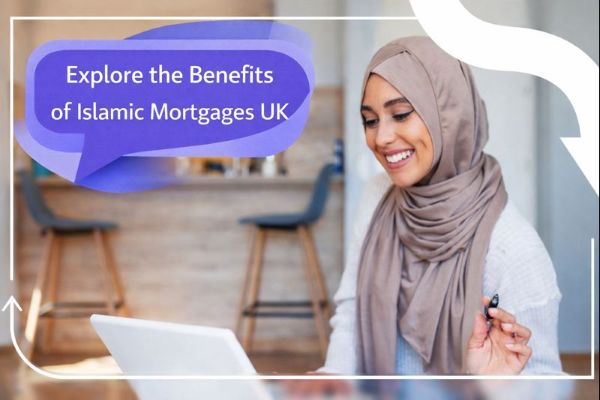Explore the Benefits of Islamic Mortgages UK | Looking for an ethical alternative to traditional home loans? Islamic mortgages offer a Sharia-compliant path to homeownership without interest charges. These alternatives enable Muslim homebuyers and others seeking faith-aligned finance to enter the property market while staying true to their values.
What Is an Islamic Mortgage?
Unlike conventional mortgages, Islamic home finance doesn’t involve charging or paying interest (riba), which is prohibited in Islamic law. Instead, lenders and buyers enter a partnership agreement to purchase the property. Over time, the buyer gradually acquires full ownership by making monthly payments.
Popular structures include:
- Ijara (Lease to Own): The bank buys the property and leases it to the buyer. Payments cover rent plus eventual ownership.
- Murabaha (Cost Plus Profit): The lender buys and immediately sells the home to the buyer at a marked-up price, with fixed payments.
- Diminishing Musharaka (Declining Partnership): The buyer and lender co-own the property. Each payment increases the buyer’s share while reducing the bank’s.
These options allow homeowners to purchase property while avoiding interest, supporting both religious beliefs and ethical finance principles.
Why Choose an Islamic Mortgage?
- Faith-Based Finance: Aligned with Islamic teachings, free from interest and speculative transactions.
- Ethical Principles: Appeals to individuals seeking transparency, partnership, and socially responsible finance.
- Fixed Repayment Structures: Predictable and straightforward repayment plans, with no hidden interest fluctuations.
- Property Ownership: You’re still on a path to full homeownership, just under a different agreement model.
Learn more in our Mortgage Products guide for a full breakdown of available mortgage types.
Who Are Islamic Mortgages For?
While Islamic mortgages are primarily designed for Muslim buyers seeking Sharia-compliant alternatives, they are open to all. Many non-Muslim buyers are also drawn to the ethical and interest-free structure, especially those concerned about excessive debt or speculative banking practices.
First-time buyers, self-employed individuals, and those seeking to refinance can all benefit, depending on lender criteria.
Where Can I Find an Islamic Mortgage as a Sharia-Compliant Buyer?
If you’re seeking a Sharia-compliant mortgage, we can help you access the right solution with confidence. At Connect Mortgages, we have 170+ lenders, many of whom offer Islamic mortgage options tailored to meet the needs of faith-based buyers.
These halal mortgage products are structured to comply with Islamic finance principles, avoiding interest and aligning with ethical lending standards. Whether you’re a first-time buyer or moving home, our recommended lenders provide precise, Sharia-compliant financing mechanisms that support your path to homeownership without compromising your values.
Getting Started with Islamic Home Finance
Navigating Islamic mortgages can seem complex, especially with unfamiliar terminology and unique structures. That’s why it’s important to seek expert advice tailored to your situation.
→ Need help comparing ethical mortgage options? “Find Mortgage Advisers” for guidance from professionals who understand both Sharia-compliant finance and the UK mortgage market.
If you’re a mortgage adviser interested in helping clients access Islamic finance products, you can also “Join our Mortgage network” to expand your expertise and resources.
Thank you for reading our “Explore the Benefits of Islamic Mortgages UK | Connect Mortgages” publication. Stay “Connect“-ed for more updates soon!







